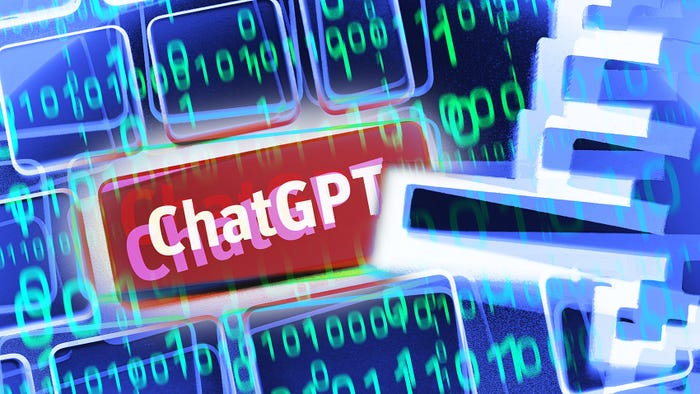ChatGPT Year One: The Drama & Disruption
As OpenAI's ChatGPT celebrates its first birthday, we look back at how it spurred stunning progress in generative artificial intelligence for consumers and businesses... and how it caused massive upheaval.

When the history books are written, ChatGPT’s public unveiling on Nov. 30, 2022 could either mark the beginning of a brave new world filled with promising artificial intelligence (AI) breakthroughs impacting science, medicine, work, and virtually every aspect of life… or the end.
AI is certainly not a new concept and businesses have been using existing technologies for years. But ChatGPT’s launch for the first time enabled the public to generate human-like text with simple prompts, and a collective proverbial lightbulb turned on. Soon, businesses started conjuring real-world use cases that would give them a competitive advantage -- the seemingly limitless possibilities for multiple industries created excitement, as well as fear for the workers it could impact.
The quickly emerging technology spawned two camps: Those who wanted to test and advance GenAI for the benefit of humanity, and those who saw an existential threat to humanity. The latter were soon dubbed “doomers” as the GenAI hype cycle gathered ferocious momentum.
ChatGPT itself had reservations about rapid widespread use. When InformationWeek prompted the bot to write an article about istelf, it wrote, "Overall, Chat GPT is a powerful technology that has the potential to transform many industries. However, its use also raises significant ethical concerns that need to be carefully considered before it is widely adopted."
And this hype cycle proved different than previously hyped advancements (such as the unfulfilled hype created by the metaverse and widespread use of augmented reality that never really advanced beyond home gadget novelty status). ChatGPT, with its mix of promises and potential dangers, captured the public imagination.
In just a year, OpenAI’s flagship product helped bring it to an estimated valuation of $86 billion and ChatGPT had reached $1 billion in annual revenue through its paid commercial and business products.
Ron Guerrier, former HP CIO, tells InformationWeek that CIOs and other IT leaders will keep a close watch on further ChatGPT developments. “The saga happening at OpenAI is of great interest to many and especially the critical CIO role,” he says. “GenAI will undoubtedly change the landscape for all organizations and society at large, so the direction and pace are of utmost importance.”
In the following slides, InformationWeek takes a look at the first year of ChatGPT and the rise of GenAI for enterprise:
Read more about:
RegulationAbout the Author(s)
You May Also Like







